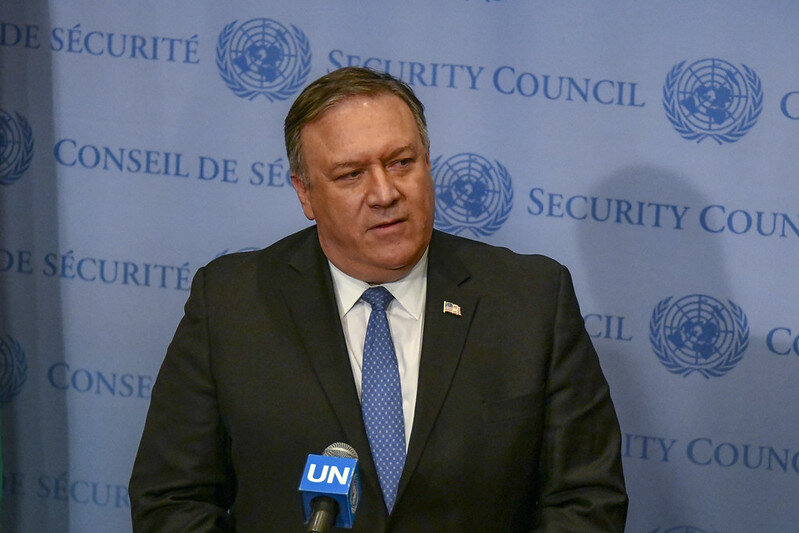Expert says maximum pressure has not weakened Iran

Defense officials and reports indicate that the maximum pressure campaign has not weakened Iran strategically or caused a reduction in Iran’s regional influence, the Atlantic Council said in a commentary published on Thursday.
A summary of the article, written by Kenneth Katzman, a specialist on Iran at the Congressional Research Service, is as follows:
The effectiveness of any U.S. policy needs to be measured against the primary objective it is seeking to accomplish.
A policy might be changing some conditions in a target country, but not others. The conditions that are being changed by U.S. policy might be material to U.S. interests, or they might not. The key question is whether the policy is affecting the core variables the United States seeks to affect, and in the ways sought by the United States.
With respect to Iran policy, in May 2018, the Trump Administration withdrew the United States from the multilateral nuclear accord with Iran (the Joint Comprehensive Plan of Action or JCPOA) and articulated specific demands for Iran to change its behavior in exchange for a new JCPOA and normalized relations with the United States. The demands pertaining to Iran’s regional activities, as stipulated in a May 21, 2018, speech by Secretary of State Mike Pompeo at the Heritage Foundation are that Iran:
* Ends support to Middle East groups, including Lebanese Hezbollah, Hamas, and Palestinian Islamic Jihad.
* Allows the disarming and demobilization of militias in Iraq.
* Ends military support to the Houthi movement in Yemen.
* Withdraws all forces under Iranian command throughout Syria….
To pressure Iran to accede to U.S. demands, the administration re-imposed all secondary sanctions that were eased in accordance with the JCPOA. And, since April 2019, the administration has gone beyond the pre-JCPOA sanctions to impose measures that would reduce Iran’s oil export income “to zero.” U.S. secondary sanctions now apply to virtually every civilian sector of Iran’s economy. The sanctions:
* Exclude from the U.S. financial system foreign banks that conduct transactions with the several hundred sanctioned Iranian entities or persons, and additional entities are designated for sanctions virtually every week.
* Penalize firms that invest in Iran’s energy sector or sell Iran goods to expand that sector.
* Penalize banks of any country that fail to reduce oil purchases from Iran, and sanction firms that ship Iranian oil. As of May 2, 2019, the administration ended a U.S. sanctions exception for any country that does reduce purchases, essentially requiring all of Iran’s oil customers to stop buying Iranian oil.
* Penalize transactions with Iran in precious metals, certain minerals, Iran’s currency, automobile production equipment, shipping, shipbuilding, shipping insurance, Iran port operations, and industrial software.
* On September 20, 2019, the Treasury Department designated Iran’s Central Bank as a terrorism-supporting entity under Executive Order 13224. The new sanctions go beyond existing provisions that bar all U.S. transactions with Iran’s Central Bank or penalize foreign banks that deal with it. This new designation does not convey a humanitarian exemption.
The administration’s “maximum pressure” campaign has hurt Iran’s economy. In October 2019, the International Monetary Fund revised downward its estimates for Iran’s GDP for the March 2019-March 2020 period to a shrinkage of about 9.5 percent. In October 2019, Brian Hook, the State Department’s top Iran official, said the administration’s own estimates indicate Iran’s economy could shrink as much as 14 percent in that same period.
The termination of oil purchase sanctions exceptions has driven Iran’s vital oil exports to lows not seen since the 1980-88 Iran-Iraq War. Absent any oil-related sanctions, Iran’s baseline crude oil exports are about 2.5 million barrels per day. But, for all of October 2019, Iran exported about 250,000 barrels per day.
Defense officials and reports indicate that the maximum pressure campaign has not weakened Iran strategically or caused a reduction in Iran’s regional influence.
Leave a Comment